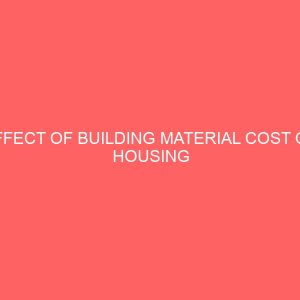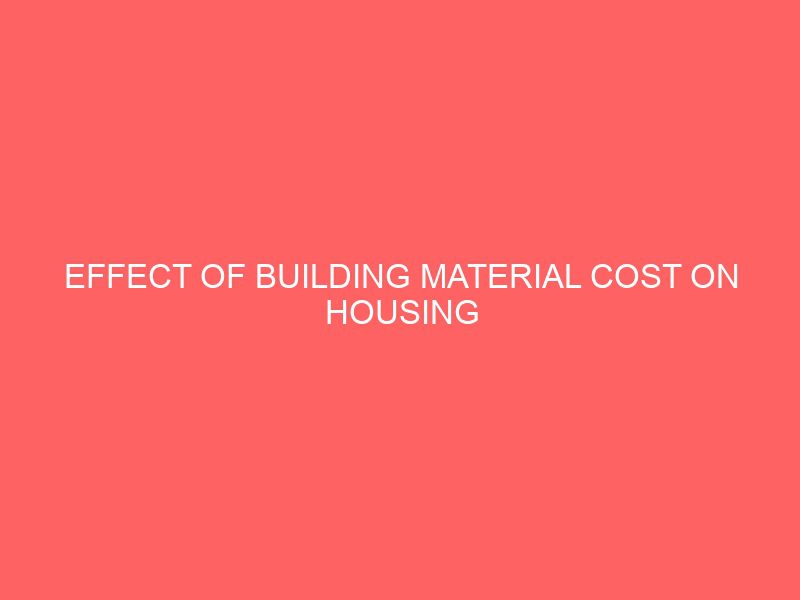Description
Abstract
This research writing is on Effect of building material cost on housing development in Nigeria. The research investigated the factors responsible for the cost of building materials and the effect of this cost on housing delivery in some states in Nigeria. Sustainable housing is buildings produced to meet the present housing needs of people without conceding the ability of the future generation to meet their future needs. However, a significant increase in the cost of building materials has been a major constraint to the delivery of sustainable housings, as made evident in the literature, leading to project cost and time overruns or even project abandonment. However, building materials consume up to 65% of the total cost of construction. This factor on cost has over the years threatened the ability of the construction industry to deliver projects within budgeted cost, at the stipulated time, and at the satisfactory quality. The research study adopted questionnaires administered to construction stakeholders (architects, quantity surveyors, engineers, construction managers, project managers, site supervisors, and material suppliers). The findings revealed that the major factors responsible for increasing the cost of building materials are inflation, wastages of building materials by laborers, cost of transportation and distribution of labor, design changes, client contribution to design change and change in government policies and regulation. The adoption of these findings would enhance the delivery of affordable housing at a reduced cost, at the required time and at the expected quality. Therefore, adequate implementation of the framework presented in this study will enhance sustainable housing delivery.








Reviews
There are no reviews yet.